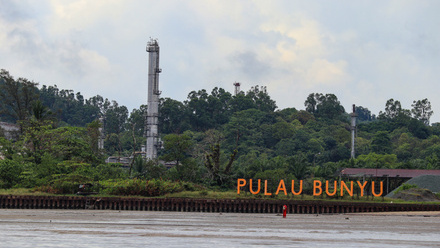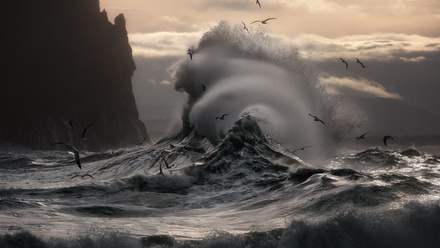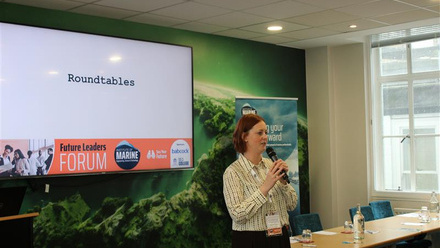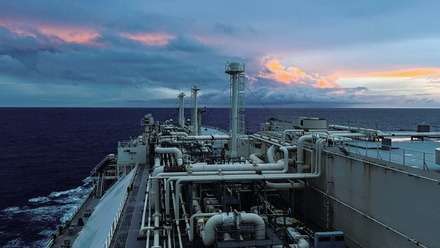Commander: ‘We need this event now’
Rinze Geertsma (FIMarEST), Chair of the International Ship Control Systems Symposium (iSCSS), looks ahead to IMarEST's upcoming INEC/iSCSS conference.
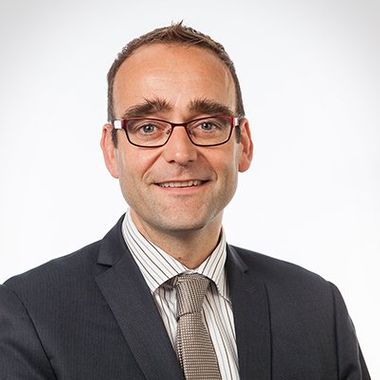
Tell us about INEC/iSCSS:
At iSCSS, [together with the International Naval Engineering Conference and Exhibition (INEC)], we will address the challenges for ship control to support the digital and green transitions [within] shipping. First, we need to be able to support commercial and naval operations at sea with reducing numbers of crew while maintaining the highest levels of safety. This requires us to utilise AI-driven decision support and virtual and extended reality to support our crews.
Second, the switch to alternative fuels and power sources leads to more degrees of freedom in control, reduces energy needs, and maximises efficient energy use. Advanced control utilising physical and data-driven models and technologies can help us achieve sustainable solutions for our ships and their energy systems.
We need this event now as the increasing complexity of both the digital and green transition requires the naval and commercial industry, academia, research institutes and governments to work together to ensure we utilise the digital opportunities effectively and maintain a human-centric approach in support of our crew, shipping companies and navies.
What types of topics and discussions are you most excited about?
We have seen in Ukraine that new drone boats have changed naval warfare and have denied Russian forces access to critical operation areas. At the same time, navies around the world are focusing on developing such drones to be more autonomous in an environment with jamming and spoofing. These developments will lead to exciting new naval capabilities at a much lower cost than our main naval platforms.
In the commercial world, cost reduction, crew welfare and safety also lead to increasing use of decision support and autonomous systems. The first tests of autonomous ships are underway in various countries. We will hear about the development of collision avoidance systems for these tests, how simulation and synthetic environments can be used to validate these technologies before testing them in these areas, and how crews can be better supported in the intermediate phase with this technology.
The increasing need for electrical power for high-power radars and pulsed power weapons and the increasing diversity in power systems and fuels in commercial shipping leads to a need for further electrification and modularisation of power systems. This leads [in turn] to an increasing need for interconnected electrical control systems, both to support mission effectiveness and system efficiency, in naval and commercial sectors. Electrification from other sectors, such as shore microgrid and automotive, leads to exciting opportunities for our sector to utilise new technologies such as energy-dense energy storage, power-dense silicon carbide power conversion and highly responsive and flexible DC power systems.
How important is it to have multi-sectoral stakeholders together at an event like this?
Both the naval and commercial sectors are developing autonomous systems for different reasons, and both sectors very much depend on connectivity and safe and secure IT systems. Moreover, the threat to naval and commercial sectors takes place in the digital environment, and adversaries are expected to try and disrupt both naval and civil operations. In this fast-changing world, we cannot afford to develop solutions for this in splendid isolation. At our symposium, we expect industry leaders and decision-makers from navies around the world, supported by the greatest minds from academia, to find joint solutions.
Integration of new power sources, new fuels and novel power conversion technologies in ship systems requires a multi-disciplinary approach. At the iSCSS, all disciplines are represented from industry, government, knowledge institutes and academia. We can move the integrated ship systems-of-systems forward only with this multidisciplinary and multi-stakeholder approach.
Join IMarEST’s Naval Engineering Special Interest Group and Marine Electrical Special Interest Group to discover more on this topic.
INEC/iSCSS takes place November 5-7, 2024, in Liverpool, England. More information and tickets are available here.
Newsletter image: Cdr (E) dr. ir. Rinze Geertsma, CEng, FIMarEST; credit: Commander Rinze Geertsma.
Main image: Argentine naval fleet; credit: Shutterstock.
Tell us what you think about this article by joining the discussion on IMarEST Connect.

